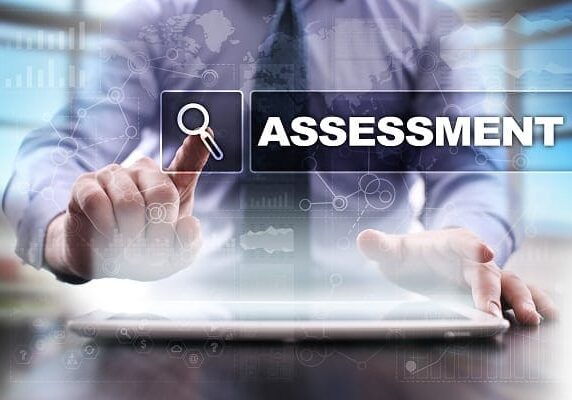I am often asked about the difference between DISC and MBTI (Myers-Briggs Type Indicator®) and if there’s an advantage in using one over the other.
Both DISC and MBTI are assessment tools that provide insight into personality and behavior. Both are widely respected and used by individuals, organizations, institutions and corporations worldwide. There are, however, a few notable differences between DISC and MBTI:
- The DISC assessment is shorter in length than MBTI (typically 24-30 questions for DISC versus up to 90 questions for most MBTI tests).
- MBTI sorts individuals into 16 four-letter types. According to Wikipedia:
- Extraversion (E)/ Introversion (I) – Extraverted types learn best by talking and interacting with others. Introverted types prefer quiet reflection and privacy.
- Sensing (S)/ Intuition (I) – Sensing types enjoy a learning environment where the material is presented in a detailed, sequential manner. Intuitive types prefer a learning atmosphere where an emphasis is placed on meaning and associations.
- Thinking (T)/ Feeling (F) – Thinking types desire objective truth and logical principles and are natural at deductive reasoning. Feeling types place an emphasis on issues and causes that can be personalized while they consider other people’s motives.
- Judging (J)/ Perceiving (P) – Judging types will thrive when information is organized and structured, and they will be motivated to complete assignments in order to gain closure. Perceiving types will flourish in a flexible learning environment in which they are stimulated by new and exciting ideas.
- DISC focuses primarily on four dominant behavioral types:
- Dominance – These are forceful, take-charge people: direct, decisive, determined and often domineering. They’re born leaders who are neither shy nor subtle.
- Influence – The friendly, enthusiastic High “I” styles want to be in the middle of the action, whatever and wherever it is. They most value admiration, acknowledgement and applause.
- Steadiness – Steady styles are the most people-oriented of the four styles. Having close, friendly relationships is one of their highest priorities.
- Conscientiousness – “C” styles are analytical, persistent, independent and well organized. They prefer to work quietly alone, emphasizing accuracy and “correctness.”
- MBTI assumes that personality is fixed and unlikely to change, while DISC is more open to the possibility that different situations and environments might bring out different behavioral traits in an individual.
- MBTI is largely an indicator of how people think internally. DISC measures how personality translates to external behavior.
Generally speaking, MBTI is a good assessment tool for the individual looking for self-knowledge. MBTI results tend to be very personal and typically reveal a great deal about an individual’s inner self. Although this may sound like an advantage over DISC, this can, in fact, also be a weakness. Because MBTI is so deeply personal and is based on a large amount of revealing data from the extensive MBTI questionnaire, people who take the MBTI may often feel uncomfortable sharing their results with others. This could make MBTI unsuitable or difficult to use in a public environment such as a business, organization or corporation where team building exercises, corporate retreats, staff training and sales meetings take place.
Also, with 16 different personality types and acronyms that are often confusing, MBTI language often fades from the memory of the casual user very quickly. MBTI test-takers are often unable to retain useful information from their personality profile. DISC, on the other hand, offers all of the advantages of MBTI, but with a more user-friendly interface. The simple acronym “DISC” is easy to remember, and, therefore, makes a much more lasting impression on users. It’s typical for individuals taking the DISC assessment to remember their results years after taking the initial assessment.
Because the DISC assessment is specific to whatever environment you have in mind when taking the assessment, results tend not to be as intimate or personal as MBTI. It’s easier for individuals taking the DISC assessment to share their results, confident that though the assessment results might reveal their work personality, their private self can remain protected.
Major advantages for DISC over MBTI for most situations:
- People remember DISC long after they hear about it.Other models, such as MBTI, are more difficult to recall. It is hard to apply what you cannot remember.
- DISC is easy to apply and is less theoretical than Both are solid and widely used. It’s not a matter of which model is right, but which one best suits the intended use.
- DISC can easily be visualized and explained in a circular or quadrant diagram. MBTI may be helpful, but difficult to diagram in a simple manner. DISC can be illustrated in a way that even young children can understand. However, DISC is not so simplistic that it cannot yield in-depth insights.
- DISC is not just for self-understanding; it provides a framework to understand others and adjust how you relate to them.MBTI is also helpful in this regard. However, to effectively apply the MBTI model for two people, you would then need to remember the right combination of eight letters for both individuals and then attempt to figure out the implications on your relationship. DISC can be as practical as helping a Guarded person learn to be a little more aware and Open when the situation calls for it.
Disclaimer
The views and opinions expressed in guest posts featured on this blog are those of the author and do not necessarily reflect the opinions and views of the International Coach Federation (ICF). The publication of a guest post on the ICF Blog does not equate to an ICF endorsement or guarantee of the products or services provided by the author.
Additionally, for the purpose of full disclosure and as a disclaimer of liability, this content was possibly generated using the assistance of an AI program. Its contents, either in whole or in part, have been reviewed and revised by a human. Nevertheless, the reader/user is responsible for verifying the information presented and should not rely upon this article or post as providing any specific professional advice or counsel. Its contents are provided “as is,” and ICF makes no representations or warranties as to its accuracy or completeness and to the fullest extent permitted by applicable law specifically disclaims any and all liability for any damages or injuries resulting from use of or reliance thereupon.
Authors
Post Type
Blog
Audience Type
Coach Educators, Experienced Coaches, External Coaches, ICF Chapter Leaders, Internal Coaches, New Coaches, Professional Coaches, Team and Group Coaches
Topic
Coaching Toolbox, Discover - Your Coaching Career
Related Posts
The Power of Active Listening in Meaningful Coaching: Why Active Listening is the Most Essential Coaching Competency
Of all the foundational coaching competencies identified by the International Coaching Federation…
Allyship in Action: Coaching as a Catalyst for Change
Allyship is often framed as a value or an intention. In practice,…
Grace Under Fire: Building Stress Resilience for Coaches and High Achievers
There’s a unique kind of pressure that lives at the intersection of…







